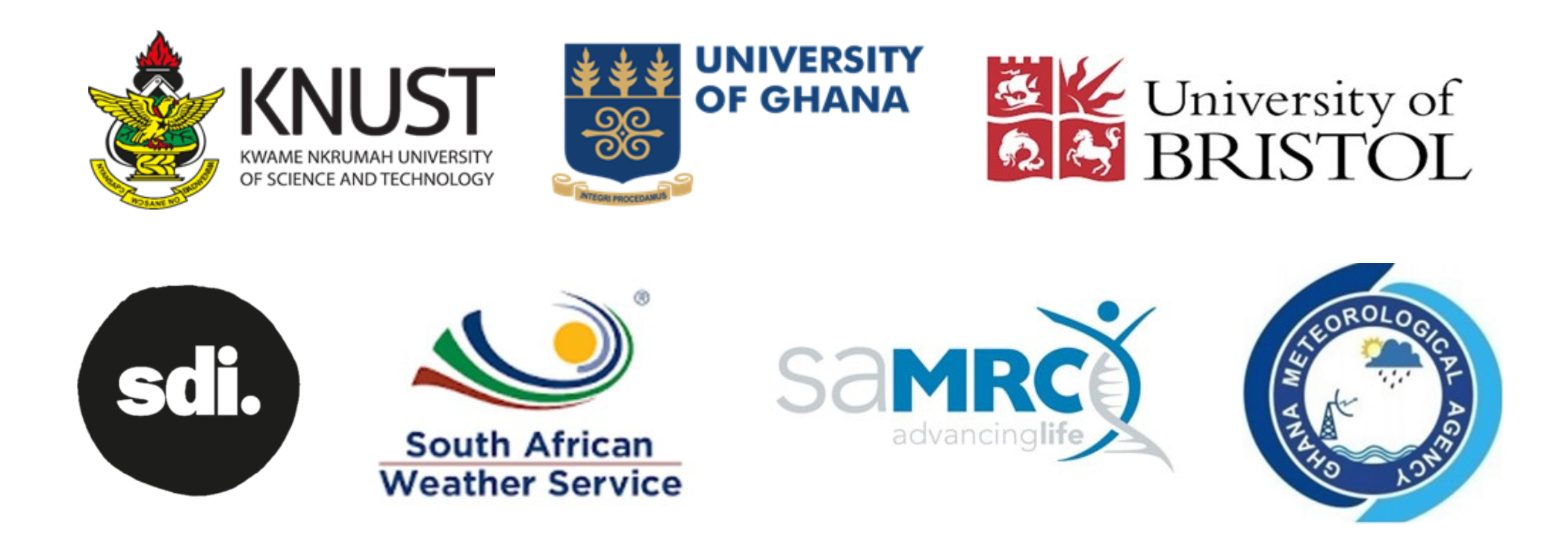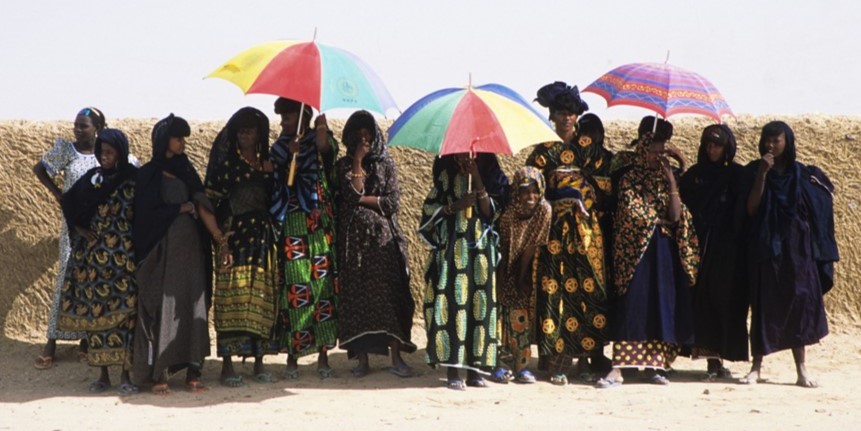
Robust evaluation of the environmental, health, and socio-economic outcomes of health adaptations are limited for Africa, especially in real-world-settings, despite high vulnerability to heat-related health risk. HABVIA aims to address these evidence gaps by gathering high-quality cohort data on physiological and mental health, alongside climate, environmental, and socio-economic information, in four heat-vulnerable study sites in South Africa and Ghana. The project will focus on two vulnerable groups, manual labourers, and informal/low-income house dwellers. As well as the development and testing of adaptation-relevant heat warning systems.
Background
Emission-induced climate change is causing a rise in global temperatures, and an increase in the frequency and intensity of heat waves. Extended exposure to high day and nighttime temperatures and associated heat stress can increase mortality and morbidity, including an increased risk of cardiometabolic disease and mental health issues. Sub-Saharan Africa (SSA) is particularly high-risk due to the intersection of some of the hottest pre-existing weather conditions and extant burden of non-communicable disease. Some populations, including informal settlement dwellers, and manual labourers - who constitute >50% of SSA’s population - are doubly exposed through their housing and work environments.
The negative health impacts of excessive heat are predictable, and largely preventable with specific heat adaptation measures. However, SSA faces a widespread “adaptation deficit” and evidence for the efficacy of heat adaptation and associated health outcomes is sorely lacking in this region. Indeed, a preliminary review assessing heat adaptation interventions, indicated that of the studies conducted in SSA, only one assessed human health outcomes, and was restricted to qualitative (self-reported) outcomes. Further, most of the interventions were “experimental”, such as testing passive cooling in shacks specially constructed for the experiment, and therefore not occupied by people.
While there is growing evidence on the effectiveness of climate services in the promotion of adaptation, much of this has focused on drought, heavy rainfall, and coastal/fluvial flooding. Heat early warning has received little attention. In instances where heat early warning systems are available, little work has been conducted to tailor these products to the needs and information access channels of vulnerable communities.
Research question, aims and objectives:
Despite a high vulnerability to heat-related health risks, interventions which investigate and implement heat adaptations are lacking in sub-Saharan Africa. The HABVIA project hopes to address this evidence gap by evaluating physical and behavioural adaptations among vulnerable populations.
The objectives of the project are:
- Co-develop and implement, with four communities, socially desirable, affordable, and scalable heat adaptations in two intersecting high-vulnerability settings in SSA: (i) low-income and informal settlements, and (ii) manual labour.
- Assess health and social outcomes of the heat adaptations in homes and for manual labour using objective physiologic, psychologic, socioeconomic, and environmental measures.
- Grow the pipeline of African researchers working on climate and public health.
- Contribute to the emerging community of practice in developing countries (and globally) on health-climate interactions among researchers, public-health, CBO/NGO and other actors.
Project location(s):
This project will work in four heat-stressed communities in Ghana and South Africa: i) Ga-Mashie, a coastal fishing community in Accra; (ii) Nkwantakese, a rural village outside of Kumasi; (iii) Site B in Khayelitsha, a mixed formal-informal township in the greater Cape Town metropolitan area; and (iv) Mphego Village, a rural community near Thohoyandou, Limpopo Province. These locations experience hot season temperatures exceeding 35℃, considered harmful to humans.
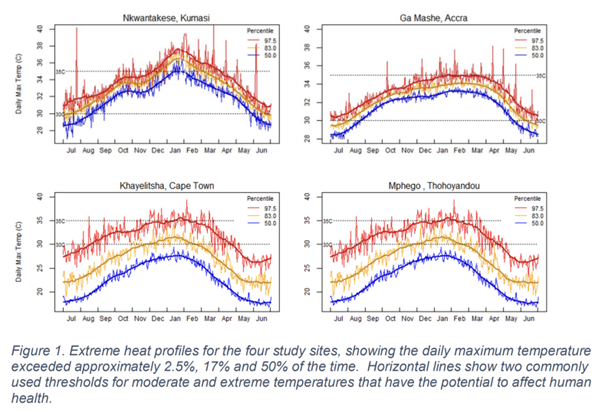
Project timeline
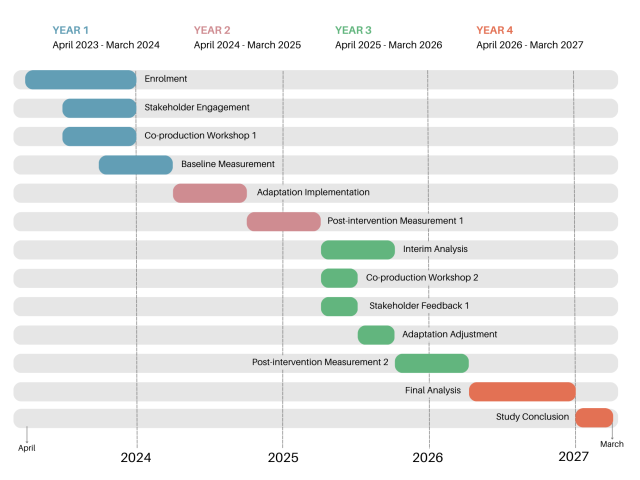
Project outputs/highlights
Recently the HABVIA project featured in a Wellcome article titled, "These research projects are finding ways to adapt to a heating planet"
Project team
HABVIA has a diverse and multidisciplinary team spanning climate risk management and adaptation, public health, and clinical research.
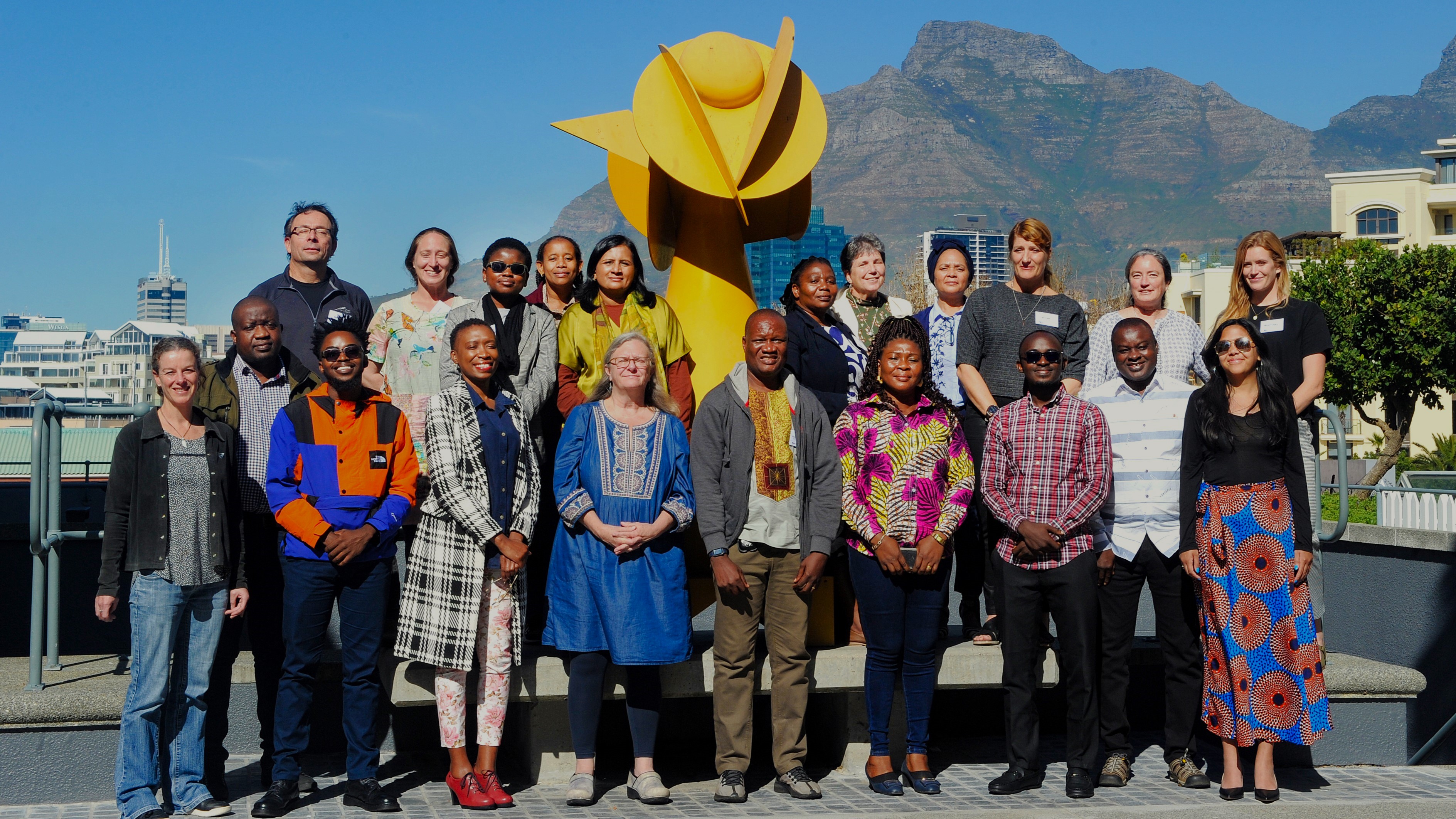
Core Research Team
Co-Principal Investigator: Professor Mark New, University of Cape Town
Co-Principal Investigator: Professor Lara Dugas, University of Cape Town
Co-Investigator: Dr. Thandi Kapwata, South African Medical Research Council
Co-Investigator: Professor Ama de-Graft Aikins, University College London
Co-Investigator: Professor Christopher Gordon, University of Ghana
Co-Investigator: Professor Guy Howard, University of Bristol
Click here for a detailed list of all project team members and collaborators
Project partners/funders
The principal investigators, based at UCT are collaborating with a number of high-level research partners including the South African Medical Research Council, the University of Ghana, Kwame Nkrumah University of Science and Technology (Ghana), the University of Bristol (UK), the Ghana Meteorological Agency, the South African Weather Services, and Slum Dwellers International to action this work.
The HABVIA project is funded by the Wellcome Trust, a global charitable foundation dedicated to advancing research in life, health, and well-being. Through their Heat adaptation: evaluating interventions to help manage the effects of heat funding scheme , Wellcome Trust has awarded multi-million pound funding to support this research across 11 countries.
HABVIA is one of nine initiatives to receive funding, aligning with Wellcome Trusts’ mission to tackle worldwide health challenges, including mental health, infectious diseases, and climate and health.
